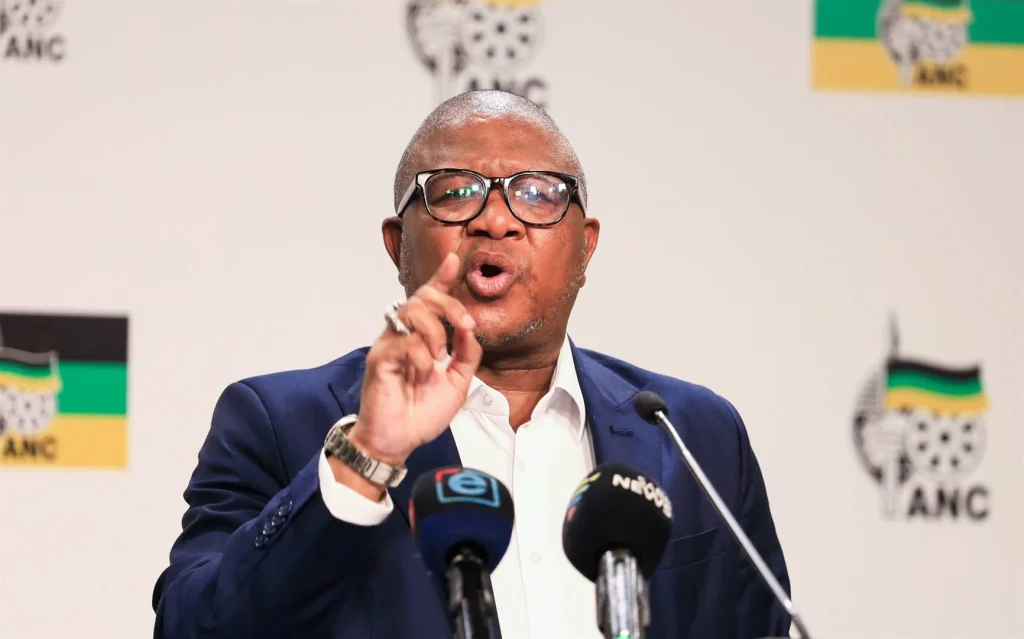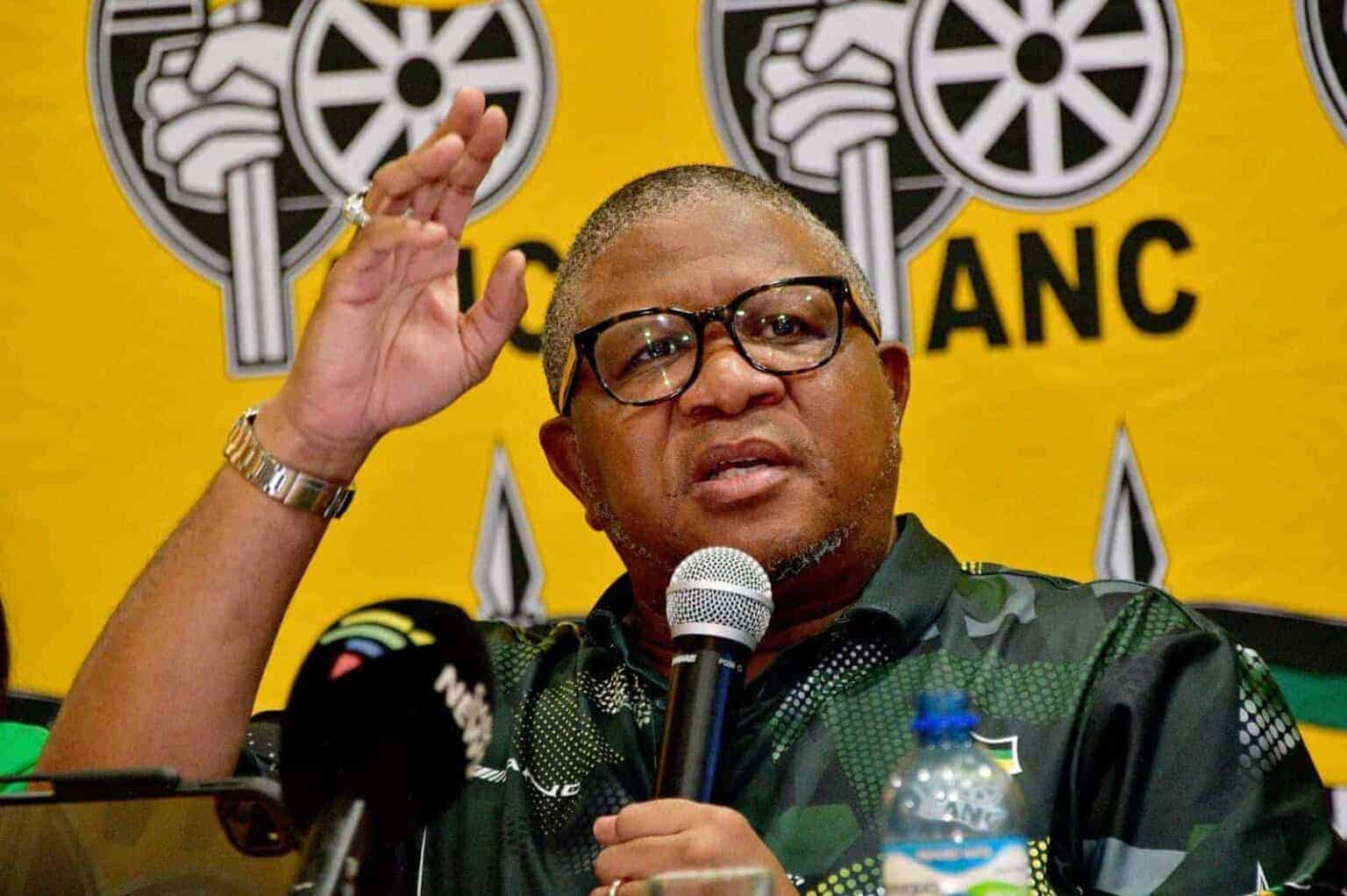The Secretary-General of South Africa’s ruling African National Congress (ANC), Fikile Mbalula, has dared the United States to “bring on” sanctions against the party’s leadership, insisting the ANC will not bow to “imperialists” or compromise the country’s democracy.
Speaking at a press briefing on Wednesday, Mbalula said:
“If they want to bring sanctions on us, let them bring them. This country, South Africa, and all its citizens know that it’s a democratic country, a liberated country, and we are still transforming it to achieve equity.”

He continued:
“We will still pursue redress. We are not equal in this economy. This economy is still dominated by white males, and you want to tell us to abandon policies that seek to advance transformation?”
Some groups, such as the Afrikaner lobby AfriForum and the trade union Solidarity, have urged the US to sanction what they call “corrupt” ANC leaders, while promoting a narrative of “genocide” against white South Africans. This rhetoric has contributed to a strained relationship with former US President Donald Trump’s administration, which controversially offered sanctuary in the US for white Afrikaners.
During his meeting with Trump in Washington, President Cyril Ramaphosa sought to dispel this narrative. However, the US administration has criticized policies such as Black Economic Empowerment (BEE) and laws like the Expropriation Act, claiming they discriminate against whites. Pretoria has countered that such legislation is aimed at correcting the racial imbalances left by apartheid.
Meanwhile, US Congressman Ronny Jackson recently introduced a bill seeking to sanction ANC leaders for allegedly supporting America’s adversaries—China, Russia, and Iran. The bill has passed through the US House Foreign Affairs Committee.
Possible targets of this legislation include ANC national spokesperson Mahlengi Bhengu-Motsiri, former ambassador to the US Ebrahim Rasool, former international relations minister Naledi Pandor, and the party’s Deputy Secretary-General, Nomvula Mokonyane.
In a post on X (formerly Twitter), Jackson accused South Africa of distancing itself from the US and its allies, while deepening ties with global rivals such as China, Russia, Iran, and Hamas.
Just weeks ago, Jackson celebrated the bill’s passage through committee, stating:
“The bill to fully review America’s relationship with South Africa and give President Trump the tools necessary to hold their corrupt government accountable has passed. The days of allowing our so-called ‘allies’ to walk all over us are over!”
Mbalula responded by asserting that the Trump administration is pressuring the ANC to abandon its principles in favor of the Democratic Alliance (DA), the ANC’s political rival and a partner in the current Government of National Unity (GNU), despite ideological differences.
“You are asking the ANC to abandon what we stand for, to stop struggling, close shop and become something else. We are not the DA. The DA should speak for themselves — they do not want affirmative action, they don’t want redress, they don’t believe in transformation,” Mbalula said.
South Africa is also bracing for a 30% tariff on its exports to the US, set to take effect on August 7, as part of broader US efforts to protect its domestic industries. Mbalula acknowledged the negative impact of such tariffs on the local economy but said the ANC would not reverse its transformative policies to appease Washington.
“It’s not going to be possible. If it means we have to suffer sanctions from the US, let it be. We will never beg imperialists to subvert our democracy, to subvert our sovereignty,” he stated.
“It happened during the struggle, it will happen even now. We will never forsake what we fought for… and we are still marching forward.”
The ANC also resolved at its four-day National Executive Committee (NEC) meeting, held from Friday to Monday, to begin engaging other political parties about joining the Government of National Unity — a move likely to dilute the DA’s influence within the coalition.


 Trending
Trending 